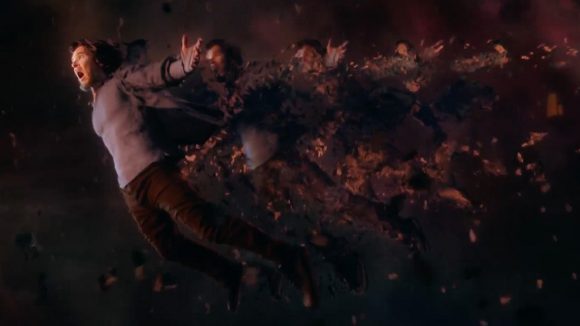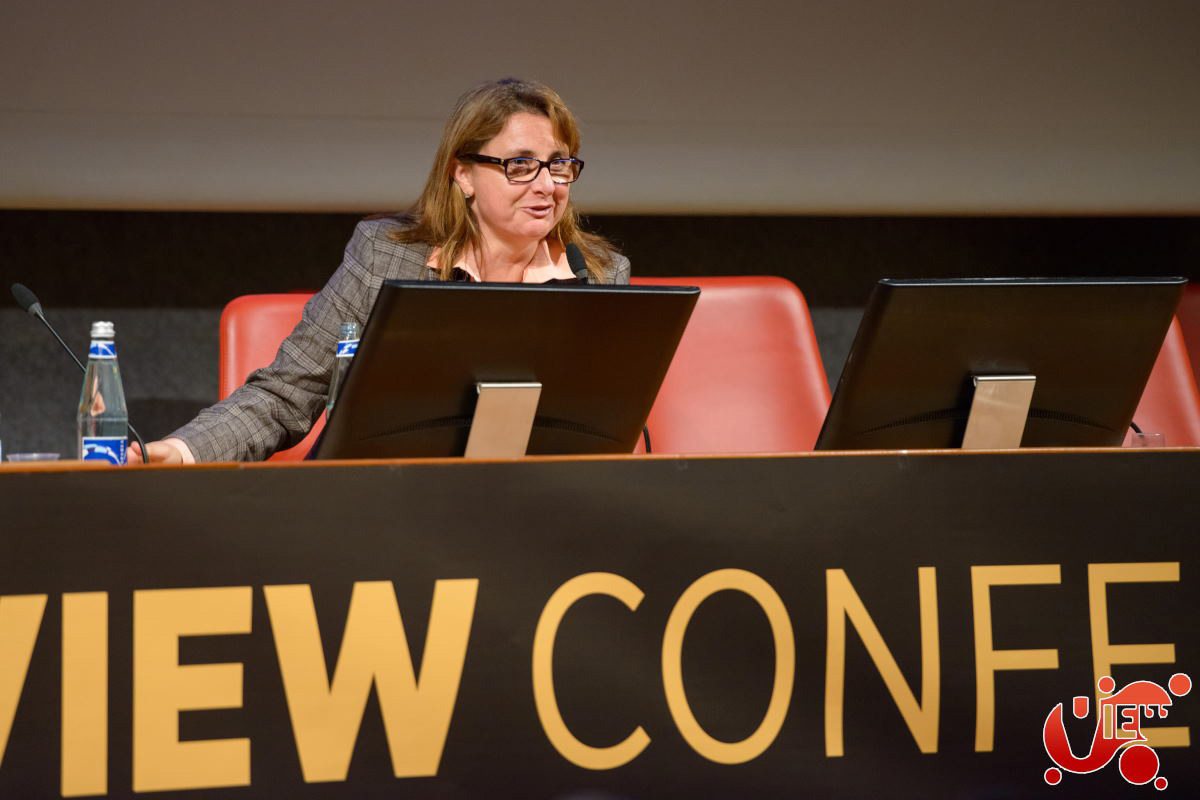

Marvel’s Victoria Alonso on How Her Studio Tackles VFX Differently
Make no doubt about it, the visual effects in Marvel films are a big deal. They’re a drawing card for audiences and an integral part in telling the superhero stories. But how do so many complicated shots go through the studio’s global pipeline?
The person behind much of Marvel’s vfx efforts is executive vice president, physical production, Victoria Alonso. She is credited with helping to herd mountains of artists and thousands and thousands of shots to final for each film, on budget. She’s also known for ushering in a new wave of collaboration amongst visual effects studios and being a strong advocate for women in the vfx industry.

The studio’s latest effort, Doctor Strange, opened last weekend in the U.S. with $85 million. A few weeks earlier, we sat down with Alonso at the VIEW Conference in Italy to find out more about Marvel’s secret sauce.
Cartoon Brew: On Captain America: Civil War, most audience members probably wouldn’t have realized that Black Panther was a cg character crafted by several vendors. Can you talk about how things get shared amongst vfx facilities on Marvel projects?
Victoria Alonso: I think the Harry Potter franchise was very much where it started. It started with the British vendors and everyone followed. I think they’re wonderful at that. I think it only works because you have continuity of the people that are making the films, and the characters. For us, what was incredibly important was I didn’t want to do something that was right for one company and then not be able to do it with another company. It has to be completely seamless.
Clearly you can still do things twice or one-and-a-half times, because the rigging approach might be something you don’t share, or there are proprietary things you don’t share. But just being able to take an asset and not having to do it three times over is a huge issue for us. Time is a big deal.
Some of the visual effects in Marvel movies clearly employ the latest tech, but how important is that in getting shots done?
Victoria Alonso: The funny thing is, people ask us all the time about technology. We have visual effects in our movies because the story needs it. It’s not because we want to have visual effects. If that particular story point needs the latest technology, then that’s what we’ll do. We don’t seek out technology for technology’s sake. That’s never been the goal of the company. We could be doing a lot of crazy things that don’t tell the story point and people would be writing, ‘It’s really cool, but it made no sense and has no place in the movie.’ What I would hope people write is, ‘I have no idea how they did that, but at that moment in the story it blew my mind.’ That is our consistent thought for us as we ventured into twisting New York, for instance, in Doctor Strange.
Can you talk about what your role as EVP at Marvel involves, on a day to day basis?
Victoria Alonso: I’m involved, as is Kevin Feige and Louis D’Esposito, from the very beginning to the very end. We are there previs’ing the show and doing visual development on shows, sometimes a year before a director comes on board. And I am the one that sees the final frame of every shot of every format.

Do you sleep?
Victoria Alonso: [laughs] No, I literally sleep about four or five hours a day. It’s been 12 years with them. I figure soon enough they’re going to let me sleep at least six hours.
At some of your talks, you’re known for being quite vocal in rousing the crowd and ‘rah-rah’ing’ the film. Do you see that as a big part of your role?
Victoria Alonso: To be honest, my ‘rah-rah’ is really about women, more than anything. Much to my trying, but not succeeding, we mostly have male visual effects supervisors. But I would like to know that girls are represented at some level. It’s also a misnomer to think that visual effects supervisors are the only ones that make, create and succeed in visual effects. There are dozens of visual effects producers who are female and countless artists too.
Do you see the ‘Marvel approach’ as very different to other studios?
Victoria Alonso: Well, we are a hybrid studio/production company. We are the studio representatives, but also the producers of the films. Louis, Kevin, and myself produce the movies together. So by the time Captain Marvel comes out it will be our 23rd movie together. I’m sure in other studios if they have the same people work on the same stories then that is like Marvel, but there hasn’t been anything like the Marvel Cinematic Universe. Even where you have the DC Comics world, it has to some extent been done with the same people, but it switches a lot. But with us it’s the three core people.
What would you say it takes to be a Marvel visual effects supervisor?
Victoria Alonso: Not sleeping is one… No, being open with what’s to come and knowing that it’s coming. We make the movie three times, right? We make it in prep, we shoot it, and then we make it in post. I think if you’re one of those supervisors that is incredibly rigid about your process, you will find that our way of working is painful. So it’s being open to the possibilities, which is very much a Doctor Strange message.
